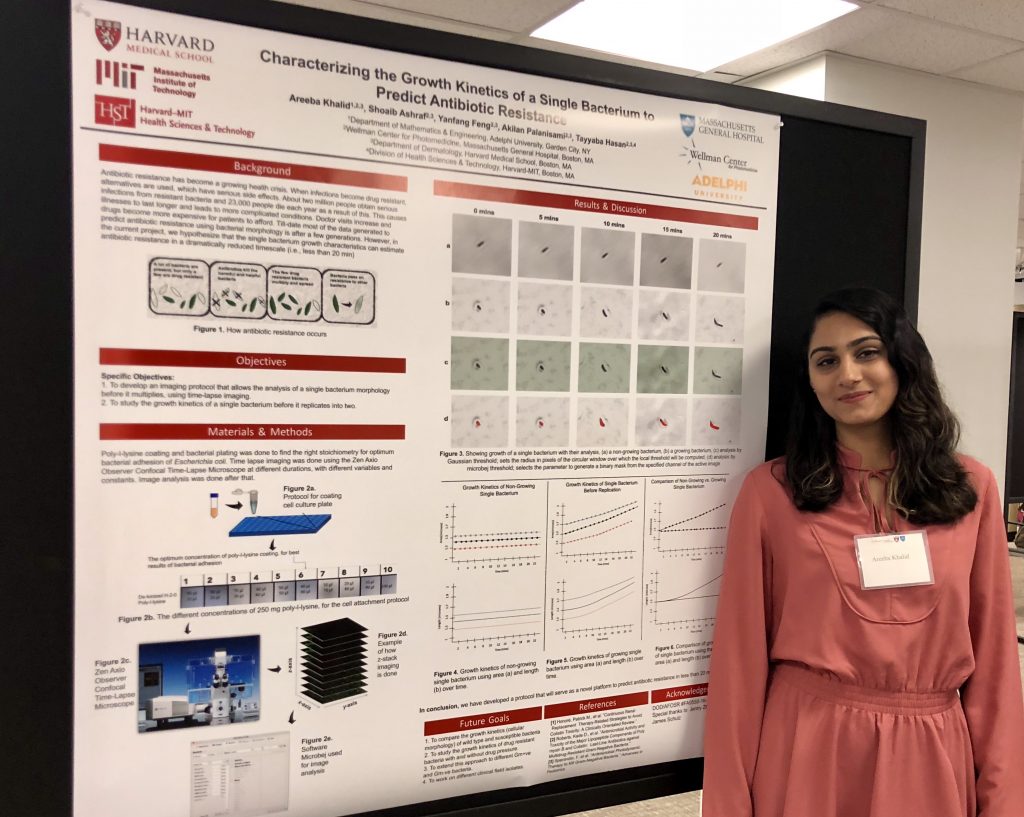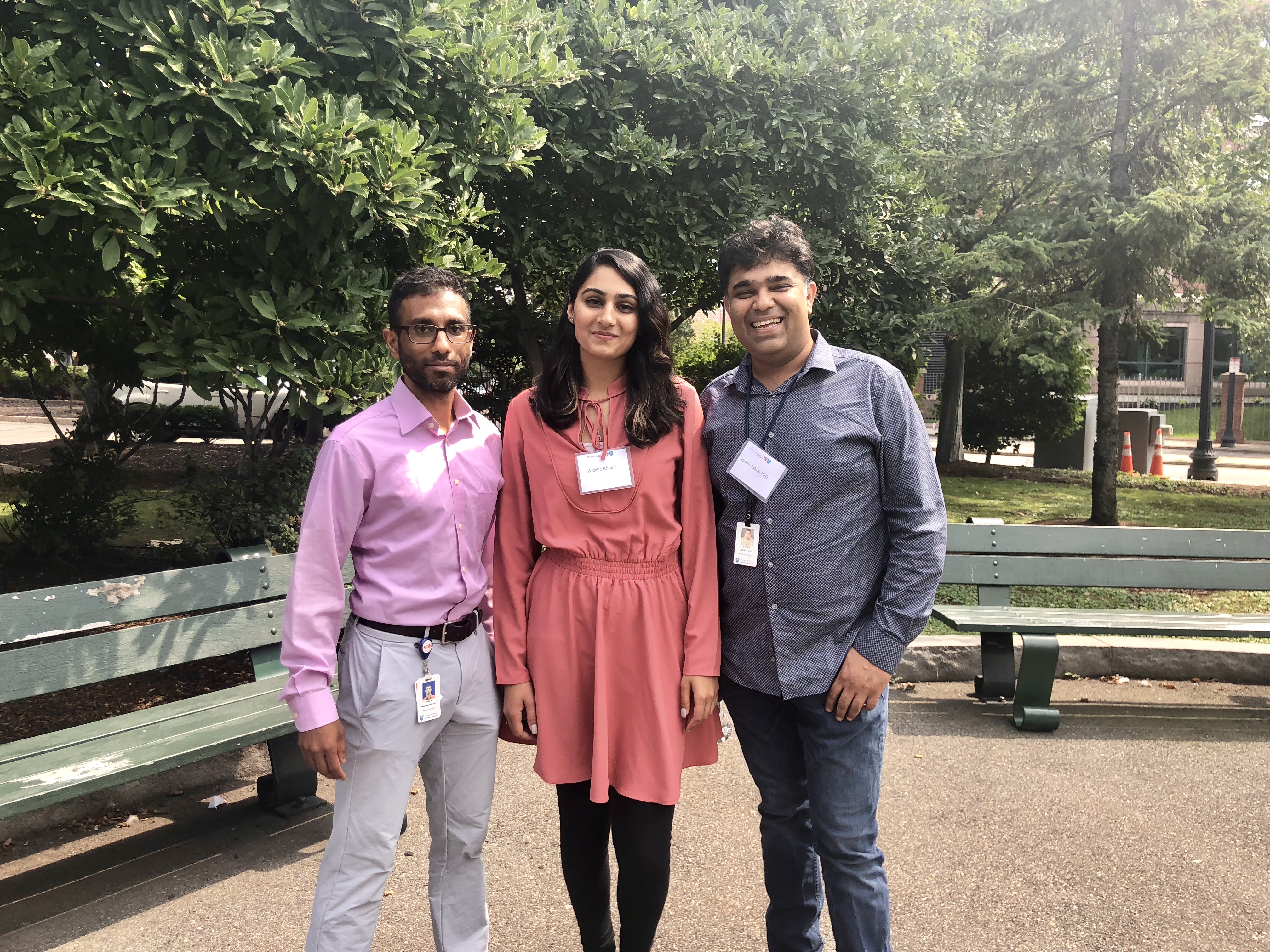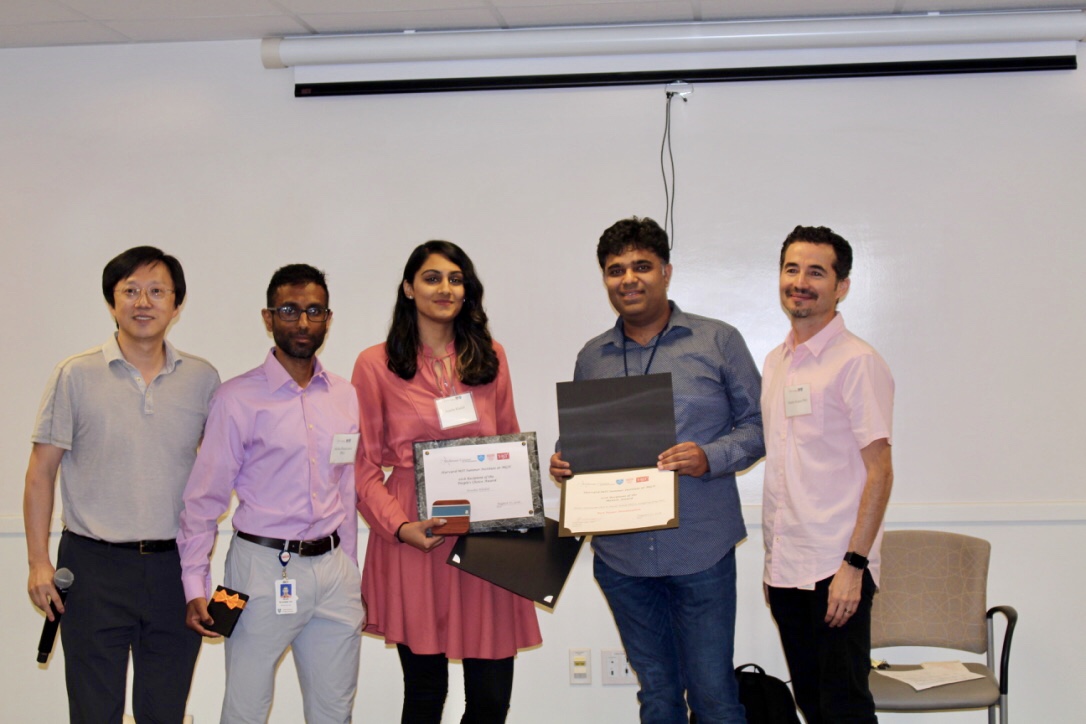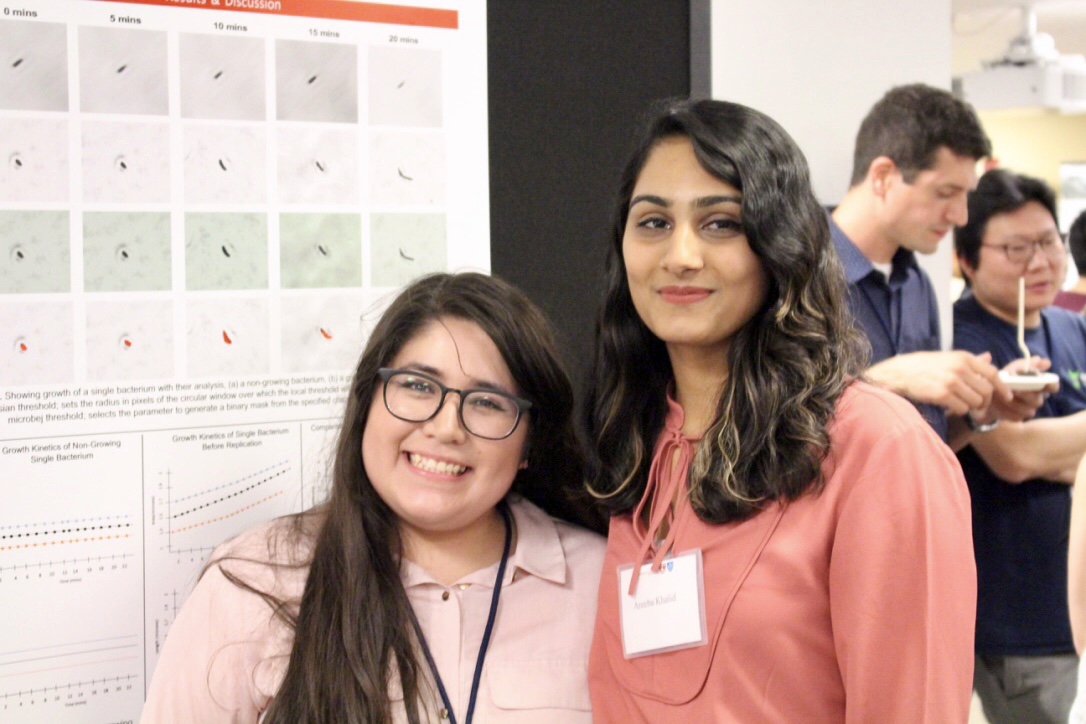Current junior Areeba Khalid came to Adelphi planning to major in math, but a Harvard-MIT internship the summer after her first year set her on a path to medical research.

Areeba Khalid, now a junior, came to Adelphi with the goal of improving the health of people in developing countries, “who don’t have the same luxuries as us (in the developed world) regarding healthcare,” she said.
Born and raised in Brooklyn, New York, Khalid’s family originally came to the United States from Pakistan. Her grandparents had told her about their challenges accessing healthcare in their home country, and she wanted to help.
She decided to major in math, complete her degree in three years and then continue to Columbia University to study biomedical engineering under Adelphi’s joint degree program. Biomedical engineers provide technical support, maintain, design and create equipment, gadgets, computer systems and other software used in healthcare delivery.
Khalid’s plans took a turn during her first year at Adelphi, when she learned about an internship opportunity in the 2018 Harvard-MIT Health Sciences and Technology Summer Institute. The highly competitive, fully funded program accepts 10 students, usually rising juniors and seniors who have completed required courses in biology.
She decided to apply even though she was not yet a junior, nor a biology major. Her application was denied, but she didn’t give up. Instead, she asked the organizers of the program to give her an opportunity to make her case.
They agreed, and she was interviewed by the program’s principal investigator, Tayyaba Hasan, PhD, who was impressed with Khalid’s enthusiasm.
“’I know you might have a tougher time than the other seniors and juniors you’ll be working with, but I’ll give you a chance,'” Khalid said, recalling the response she got after her interview with the principal investigator.

Researching Antibiotic Resistance
Prior to the internship, Khalid said she hadn’t studied biology beyond her ninth-grade class. After she was admitted, she spent long hours studying the subject to be on the same level as the other students in the program.
She read about E. coli, a bacterium that can contaminate our food supply, sometimes causing severe symptoms that require people infected to be hospitalized. The infection can even be fatal. E.coli is treated with antibiotics, but overprescribing antibiotics can cause bacteria like E. coli to become resistant to treatment.
Bacteria respond to antibiotics; viruses do not. It takes 24 to 48 hours for doctors to determine whether an illness is caused by a bacterium or a virus, so they often prescribe antibiotics without waiting to receive a result. Overprescribing antibiotics causes bacteria to become resistant.
Khalid chose to focus her research on antibiotic resistance, which she described as one of the major health problems of today.
In the internship program, Khalid and her team won the People’s Choice Award for devising a method to get test results in a shorter time frame. By screening urine samples from patients with time-lapse microscopes, they could get results within 20 minutes. “So instead of waiting for 24 to 48 hours and giving people antibiotics, doctors can tell patients within 20 minutes if they have a viral infection or bacterial infection and if they need antibiotics or not,” Khalid said.
Although Khalid’s internship was just for the summer of 2018, she still works remotely with Dr. Hasan’s research team (Drs. Ashraf, Palanisami and Feng) on a malaria control project for which she developed a computer code that scans for malaria parasites in patients’ blood.

The Difference an Internship Makes
Khalid said her experience in the Harvard-MIT internship inspired her to change her career path from biomedical engineering to medical research. She is now taking premed courses.
“I’m now planning to apply to medical school, but I want to go into medical research,” she said. “I want to have that option because I met a lot of people who don’t have medical degrees (MD) but have PhDs and told me you should go for the medical degree first instead of the PhD, because the medical degree holders have an added advantage toward real-time problems.”
The internship also ignited a love for research. Khalid is part of a physics lab run by Matthew Wright, PhD, associate professor and physics department chair. She attended two research conferences in 2019: the American Physical Society’s annual meeting in March, and PhysCon, the biggest undergraduate physics conference, in November, where she presented a poster on her current research on lasers.
“Areeba is one of these people who defines her own path, for whom the normal rules don’t apply,” Dr. Wright said. “She is a fighter and someone who can overcome major obstacles. As her mentor, I have found that if I give her flexibility, I get awesome returns.”

Keys to Success
Khalid credits her success to her parents, older siblings—one of whom is a civil engineer and the other in medical school— and her supervisors (Maria Birch ’09 and Donna Kiesche) at her job in Adelphi’s Office of Human Resources. She said it was through their encouragement that she landed the internship.
She said Adelphi’s small class sizes have also been of great help. “If you don’t understand something, the professor will stop and make sure you get it so that you don’t leave the class confused,” she said.
Khalid’s research on malaria is scheduled to be published in the Journal of Clinical Microbiology and in Theranaustics.